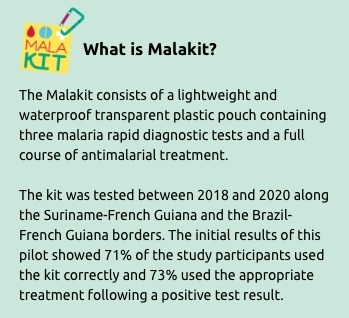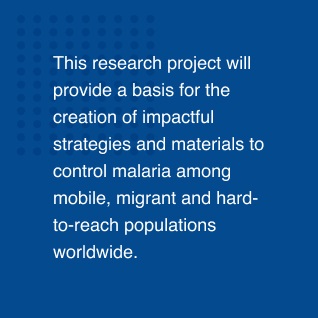
Malakit: Malaria prevention and control in mobile and hard-to-reach populations
Overview
The last decade has seen impressive progress in the elimination of malaria in the Guiana Shield region — specifically in the countries of Brazil, Suriname and French Guiana. The average number of cases in Suriname has decreased from 5,800 per year in 2009 to 75 in 2021. Despite this success, mobile and hard-to-reach communities remain cut off from malaria prevention and treatment services and are dependent on self-diagnosis and incorrect or illegal medication. Encouraging proper malaria diagnosis and treatment is crucial to eliminating malaria in the region and preventing the emergence of new drug-resistant strains.



